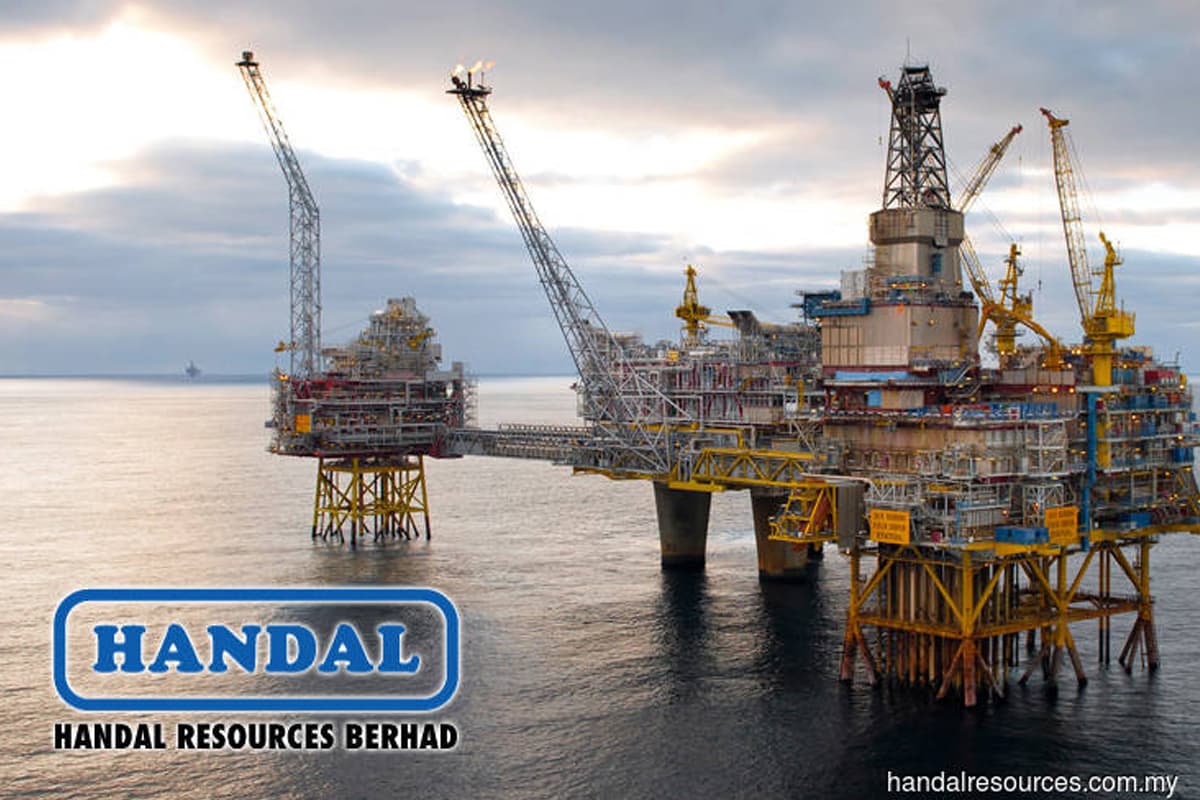
This article first appeared in The Edge Malaysia Weekly on September 14, 2020 - September 20, 2020
HANDAL Energy Bhd was supposed to mark its comeback to the big league of oil and gas (O&G) services companies with a RM360 million contract. But that ambition has stalled as a dispute with its joint venture (JV) partner resulted in the integrated offshore services provider withdrawing from the deal.
Handal and its two subsidiaries — Borneo Seaoffshore Engineering Sdn Bhd and Handal Engineering Sdn Bhd — are suing Brian Chang, Tracy Chang, Emily Soon Wai Chin, Singapore-based offshore O&G firm Calm Oceans Pte Ltd and Brian Chang Holdings Ltd for “deceit and negligent mis-statement” and are seeking damages amounting to RM152.4 million, interest and costs.
The lawsuit, filed on Aug 3, details a partnership turned sour between Handal and its partner in the construction of a mono-column platform (MCP) — an offshore mobile platform unlike conventional fixed production platforms — for use by Petronas Carigali Sdn Bhd on its marginal fields. The contract by Petronas Carigali was worth RM360 million over seven years.
The exact capital expenditure (capex) of the construction of the MCP is in dispute, according to Handal group managing director Sunildeep Singh Dhaliwal. “We had bid for the contract by Petronas Carigali based on a specific capital cost for the MCP. However, in January, the contractor sought to increase the capital cost to a much larger figure,” he says, declining to reveal the amount except that the capex increase was more than 30%.
Due to the cost escalation, Handal and Petronas Carigali had mutually agreed for the Handal JV to withdraw from the contract. The structure is about 30% to 40% completed.
Sunildeep acknowledges that the contract loss will have implications on Handal’s financial standing. “It is a setback. Having said that, we have won several contracts in the last seven to eight months [that will help fill the void left by the loss of the Petronas Carigali contract]. The major challenge for us is that the Covid-19 pandemic has affected the execution of some of these contracts, which run into a few hundred million,” he says, noting that the contracts will be disclosed to Bursa Malaysia once “approval of all relevant authorities has been obtained” and that they are mostly related to well and offshore maintenance works.
Sunildeep isn’t holding his breath for a quick end to the dispute. “In O&G, disputes are quite common. We will let the lawyers handle it. The business still carries on,” he tells The Edge in an interview.
The MCP is an invention by Chang, who is founder, chairman and CEO of Calm Oceans — the contractor of the structure. Under the partnership, the MCP is 51%-owned by Handal while Calm Oceans owns 49%.
Unfazed by the dispute, Sunildeep says Handal will continue to pursue contracts to provide the MCPs in Malaysia as Seaoffshore International Sdn Bhd, which is wholly-owned by Seaoffshore Capital Sdn Bhd, is the exclusive licensee of the patented asset in Malaysia until 2034. Seaoffshore Capital is owned by Yamani Hafez Musa, Mohamad Ismail and Sunildeep.
“We still think the technology is good. But next time, we will engage a local engineering, procurement and construction contractor [instead of Calm Oceans] to construct the platform,” says Sunildeep.
In the financial year ended June 30 (FY2020), Handal posted a net loss of RM25.29 million, due to an impairment charge of RM10.6 million arising from the MCP investment, as well as the Covid-19 outbreak, which led to reduced offshore service activities.
“Many of our pipeline engineering and crane (overhaul and maintenance) activities are located off Sabah and Sarawak. O&G workers were subject to the mandatory 14-day quarantine orders when signing on or off from offshore platforms. As a result, much of the offshore maintenance works was deferred and that severely affected our revenue in FY2020,” says Sunildeep.
The group posted a revenue of RM87.34 million in FY2020. There were no comparative figures available as Handal had changed its financial year-end in the previous year. At end-June, the company had a cash balance of RM21.95 million while its short-term borrowings totalled RM29.77 million.
Sunildeep says the group saw the effects of Covid-19 coming and had implemented a cost optimisation programme, involving cutting staff salaries by between 15% and 25% in May, to conserve cash. The group is keeping its target to turn a profit in FY2021.
“If not for Covid-19, we would have been profitable (in FY2020) regardless of the MCP dispute,” he says, pointing out that the group was profitable in the first two quarters of FY2020. “That is because the (Petronas Carigali) contract would only start contributing to earnings in FY2021.”
Sunildeep notes that there has been a ramp-up in pipeline engineering and crane maintenance activities of late. “Barring another wave of Covid-19 infections and based on the jobs we have lined up, we should be able to break even in FY2021, if not make a small profit.”
Handal’s order book has fallen to RM400 million from RM950 million in July 2019. “There are still a lot of jobs out there although their execution is being deferred due to plummeting crude oil prices and the pandemic. I expect many of these high-technology well works will only return by early next year,” says Sunildeep.
While Handal will continue to eye expansion in the region, he believes a pickup in regional project execution will take longer than domestic projects, that is, at least until end-2022.
Last Wednesday, Handal’s share price had fallen 44% year to date to close at 19.5 sen, giving the company a market capitalisation of RM42.61 million.
Save by subscribing to us for your print and/or digital copy.
P/S: The Edge is also available on Apple's AppStore and Androids' Google Play.